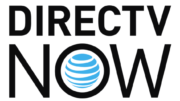Well friends, usually if you read this column you’ll see me railing on one of my favorite love-to-hate streaming services. This column’s a little different and I hope that it gets some traction out there because it’s a story that needs to be told.
Here’s the real question
Let’s say you use one of those live TV streaming services. I mean like DIRECTV Stream, Sling, YouTube TV, that sort of thing. When you’re at home you’ll get local channels. But what happens when you travel outside your local area? Can you still get local channels from home if you are away from your home city?
Most of the time, the answer is no. The major streaming services will either give you local channels from where you are, or if you’re away from your home city (where your billing address is) they’ll give you no local channels at all. If you have a Gemini Air, AirTV Mini, even a Fire Stick or something like that, it’s not broken. It’s doing exactly what it’s supposed to be doing.
You’re not supposed to get local channels outside your local area, and the loopholes tha let you do it have mostly closed in the last ten years or so. For a while, with both satellite and streaming, you could get local channels from another city if your city didn’t have streaming locals. That’s really not true anymore.
Why does it have to be this way?
There’s a reason you can’t stream channels from another city. It goes back to a mid-20th-century rule called “syndicated exclusivity.” This goes back to the days when everyone got about 3-5 channels and that’s it. Syndicated exclusivity means that if a local station has the right to broadcast a show, no one else in the market would get that right. It’s why every market has only one ABC station, for example. Markets might be close enough to each other that your antenna can get two of them, but your “home market” only has one.
In the days before cable, this was enforced with an iron fist. When cable TV came in, the rules got more flexible because they had to. If your local TV station carried Gilligan’s Island they weren’t going to get anywhere trying to sue TBS for carrying the same show. But when it came to broadcast channels, that rule still existed.
The evolution of broadcasting and exclusivity
The rule of “syndicated exclusivity” became a big problem in the 1990s when satellite TV came into play. In order to distribute local channels, they would need to go to an uplink center. In practice this meant sending locals from all over the country to Los Angeles or Colorado. There was also a law that said that a local channel couldn’t intentionally broadcast outside its local area. Since satellites are definitely not in anyone’s local area, that was a problem.
By the truest definition of the law, that was illegal. So, Congress carved out a set of exceptions to this rule that let satellite providers encrypt signals and provide local channels. It’s this set of rules, or the spirit of them anyway, that govern live streaming TV.
Streaming isn’t broadcasting. It’s not required to follow a lot of the same rules. But content providers like Disney and live TV companies like DIRECTV and DISH still agree to follow the rule of exclusivity. Most of it is through contracts and not through laws, but the end result is the same. You’re just not going to get local channels from another city on a live TV streaming service.
Yeah but what if you do?
Obviously there are streaming channels on Pluto and other free services that show newscasts from other cities. You can go to a station’s web site and stream their broadcasts most of the time. And I’m not gonna lie, there are times that your streaming devices doesn’t catch up when you move and you still get channels from where you used to be. However, these cases really don’t affect anyone’s revenue. Those streaming newscasts are designed to go national. If you stream from someone’s web site, you’re watching their commercials. And eventually, your streaming device will catch up and you’ll lose those out-of-market locals.
Then there’s the matter of the VPN. I won’t go into too much detail here, since you can find that info a lot of other places. But, you can set up a VPN which makes it look like you’re anywhere else you want to be. This would let you get local channels from any city you want. Technically, you’re agreeing not to do that when you sign up with these services.
Some folks on enthusiast web sites will tell you that you’ll never be caught. Maybe that’s true. Maybe it isn’t. It seems like an awful risk to me.
The one legal guaranteed way to get your local channels from home
The AirTV Anywhere device you see above connects to an antenna in your home. It lets you stream your antenna content to your Sling app (the app is free) so you can watch it no matter where you are. You can even set up recordings. If you set up one at your house, you can watch local channels no matter where you are, as long as you have an internet connection.
How is this legal? About a decade ago it was established that this sort of retransmission was legal, as long as it was for personal use and didn’t generate any sort of profit. Sharing your stream isn’t legal, but using it yourself is just fine.
When I tell people about all of this, the first question is always “is this ever going to change?” After all, the world of live video is very different than it was 50 years ago. I don’t think it’s going to change necessarily, but I do think that the world of local live television is going to change a lot in the next ten years. It could be that this sort of rule just doesn’t make sense to anyone anymore when that happens. But that’s a matter for the lawyers, I guess. All I can do is blog about it.





